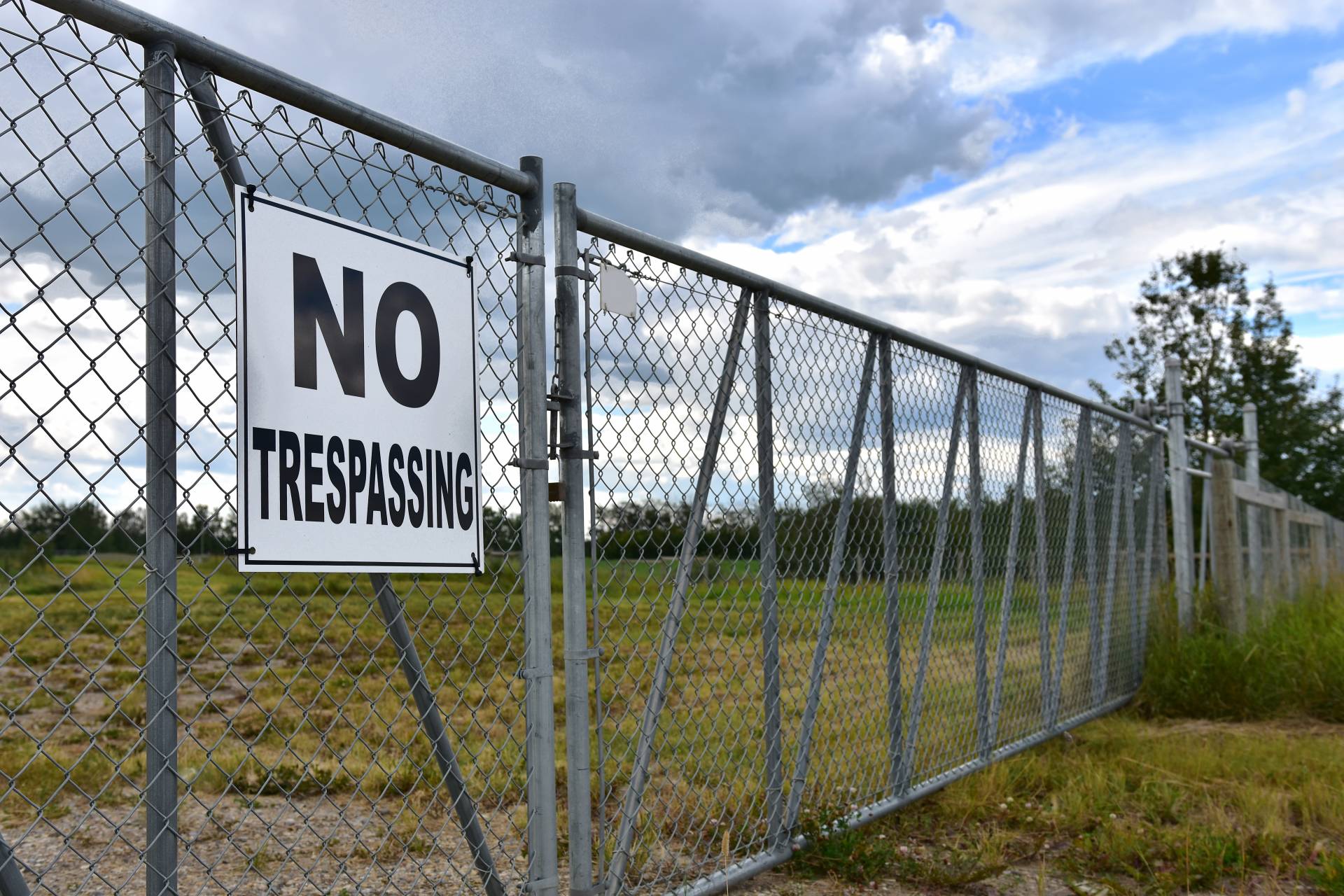It is not uncommon for accused persons to be engraved with nervousness and get scared about what might come next. You might even be angry after being falsely accused of a trespassing crime that you did not commit. If you end up with a conviction, the worst possible outcome is hefty fines and months or years in confinement.
While the penalties are harsh, you can easily avoid them with the help of an experienced Denver criminal defense attorney. A proper defense team can help you familiarize yourself with the laws on trespassing and help you explore the possibilities. If you get things right, you can easily fight for an acquittal or reduced charge.
How Will I Know if My Trespassing Charges Fall in the Right Category?
Many people have been charged for offenses not in alignment with the crime they committed in Denver. A better understanding of how the law defines various trespassing charges is critical.
First-Degree Trespassing
Unlawfully and knowingly remaining after entering another person’s home qualifies as first-degree trespassing in Colorado. Simply intruding onto the larger property isn’t enough to charge someone with first-degree trespassing. They ought to have actually entered a person’s dwelling to be a first-degree offender.
First-degree trespassing isn’t just limited to personal dwellings. One can also be charged with this offense if they enter into another person’s car with the primary intention of stealing something.
Second-Degree Trespassing
You can attract second-degree trespassing charges if you gain unlawful access to another person’s fenced or enclosed property. This charge also applies to anyone found in the common areas of an apartment building, condo, motel, or hotel. Also, trespassing on state agricultural lands with an intent to commit a felony is second-degree trespassing.
Third-Degree Trespassing
This degree of trespass happens when one enters or decides to remain in another person’s property without posing a danger to the property or its inhabitants. This often occurs when the offender knows a person living on the property.
How are Trespassing Convicts Punished in Colorado?
While some charges attract more years and higher fines than others, all forms of trespassing punishment are quite serious. Failure to work with a Denver trespassing lawyer increases your chances of serving these jail or prison terms.
First-Degree Trespassing
It is a Class 5 felony with fines of between $1,000 and $100,000. The prison term can range between one and three years in confinement. The prosecutor needs to prove that you either remained in or entered another person’s dwelling or car, and prove that your intention for accessing the vehicle was criminal.
Second-Degree Trespassing
Being a Class 3 misdemeanor, one might have to serve a 6-18-month jail term in Denver. The fines can be as low as $500 and as high as $5,000. But if the trespassed property is agricultural land, the offense might fall under class 2 misdemeanor. If there were intentions to commit a felony, the crime could graduate to a class 4 felony.
Third-Degree Trespassing
This offense falls in Class 1 petty offenses, which is punishable with as high as six months in jail, and fines of up to $500. The charges might not fall in this category if the premises in question is agricultural land. It could be a class 3 misdemeanor or a class 5 felony, depending on whether there was criminal intent or not.
What Defense Approaches Can My Attorney Use?
When designing a defense approach for trespassing, the Colorado trespassing attorney needs to establish to what extent the offender knowingly entered another person’s premises. For instance, if they were intoxicated or drunk, they might have mistakenly entered a neighbor’s house. Therefore, thorough investigations are necessary to see if this approach is applicable.
The rest of the defense approaches are the ones that are commonly used in most other criminal cases. The defense team could analyze the procedures involved and identify any violation of the constitution, such as:
- Proper warrant
- Right to the preservation of evidence that could be used against you
- Right to have seizures and searches based on probable cause
- A right to a counsel
- The right to remain silent
Another approach to defense is to scrutinize, critique, and expose shortcomings in the prosecution’s case. Some of the flaws that a criminal defense attorney in Denver can take note of include:
- Inaccurate crime scene reconstruction
- Flawed photo lineups
- Incompetent computer evidence
- Flawed procedures in collecting or administering urine, blood, or breathe for forensic testing
- Flawed crime scene investigation
- Incompetent or biased witnesses
Are there Exceptions to Trespass Charges?
In most trespassing cases, the question of “lawful” or “unlawful” presence in someone’s dwelling or property is often a confusing subject. Many landlords wonder whether they can be charged for trespassing if they enter the property they have rented out. It depends on the lease provisions.
The lease can give the landlord consent to access the rental property under certain conditions, at specific times, and for specific purposes. But it is worth noting that consent goes as far as it is given. For instance, a movie ticket only gives you access to the theatre during the show indicated in the ticket, and staying for the next movie can be criminal trespass.
Sometimes, circumstances force people to be in other people’s dwellings or property without permission or consent. You might not be convicted if you trespassed in the following circumstances:
- In an emergency
- To escape a crime in progress
- When your life was in danger
- You entered to rescue someone from a burning house
- You are a first-responder and went in for a rescue mission
An Attorney Protecting the Rights of the Accused
Unlawfulness, entering, and remaining are primary determinants of a trespassing case. Besides that, there are several other approaches to escape the penalties. It just needs an experienced legal representative. Once your trespassing lawyer at Daniel M. Murphy, P.C gathers the details of your case, it would be easy to build a strong defense strategy.
There are several ways to defend yourself against these charges. You don’t have to suffer alone in the hands of the prosecutor. Book a FREE case evaluation with us today to get started.







